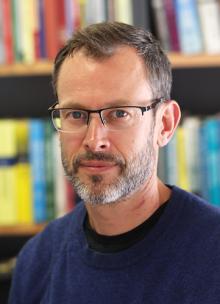Scientific Computing in Economics and Finance: Past, Present, and Future (Prof. John STACHURSKI)

| Date(s) | Tuesday, 25 April 2023 4:00-5:30 pm |
|---|---|
| Venue |
Zoom Webinar (Register here) |
| Registration | Pre-registration required |
| Language | English (Japanese simultaneous translation available) |
| Abstract |
Increases in computer power and computational tools have transformed economic research, as well as many other sciences. This talk will discuss the ways that growing computer power has changed economics and finance, and how recent developments such as deep learning, artificial intelligence and machine learning might transform it in the future. |
| Program |
Lecture Comment Q&A
Moderator |
| Organized by | Tokyo College, The University of Tokyo |
| Contact | tokyo.college.event@tc.u-tokyo.ac.jp |












